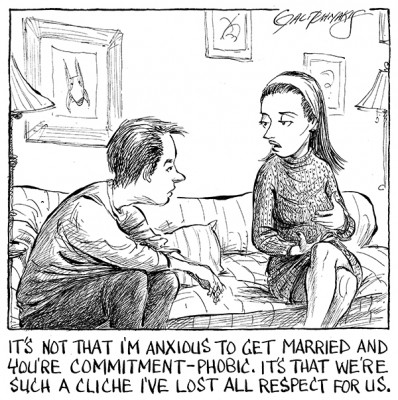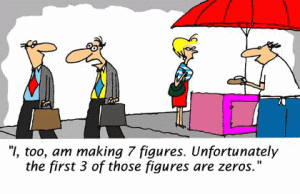So I have been following/covering this case of a young Bollywood actress with a not-so-promising career, Jiah Khan, who committed  suicide, after what has now been widely reported as ‘heartbreak’ over her relationship with actor Aditya Pancholi’s son Suraj Pancholi. Strangely, the opinions I hear on this case are so divided that it seems like Moses and the Israelites could walk through the gap.
suicide, after what has now been widely reported as ‘heartbreak’ over her relationship with actor Aditya Pancholi’s son Suraj Pancholi. Strangely, the opinions I hear on this case are so divided that it seems like Moses and the Israelites could walk through the gap.
Everyone agrees, Jiah was young, beautiful and she shouldn’t have chosen to end her life so. That part is easy. But the sea parted after Suraj Pancholi was arrested for abetment. Suddenly, even the most vehement of feminists were heard saying how can you blame him for what she did? I partly agree with the theory that suicide is your personal choice, but there are sometimes circumstances of abuse where the victim is driven to suicide. Suicide is all about the feeling of having no options and has little to do with weakness or foolishness. The alleged suicide letter, if taken into account as the original sequence of how things had gone down, does support the talk of abuse. But that is still for the courts to decide, all I wish is to debunk some random theories spouted by misogynists and feminists about why Suraj can’t be responsible, all of this, of course, is on the basis of the recovered suicide note being true and on other commonsense things.
Argument No. 1 : Suraj Pancholi is young, only 21, how could Jiah expect him to marry her?
Umm, that still doesn’t take away the responsibility of having a healthy relationship away from Suraj does it? And I don’t think our society is as forgiving of an 18 year old girl who made the ‘mistake’ of dating some guy. We expect her to take full responsibility of her choices, so why not ask the guy to shoulder those too, irrespective of his age. The most irrational arguments I have heard when I said this – well its not like he raped her, she agreed to it too and the best I’ve heard yet, well you women are born with it (vagina and uterus) so you have to deal with it.
Argument No. 2 : Why didn’t she walk away?
She had it all, beauty, what seem to be like somewhat concerned family. Why didn’t she just walk away, if she had started to know that Suraj was a loser? People who say that have clearly never been in an abusive atmosphere before. Yes, the abused can walk away, but it is not always easy. There is what is called a cycle of abuse in every abusive relationship. The first time the abuse happens is mostly when the victim has slowly shed all inhibitions and trusted the abuser totally. It shocks the victim, logic kicks in and they try to distance themselves. When the abuser realises that he/she may lose control over the victim, they return with more promises of change, of special love, all honey suckle and dew. The reconciliation is followed by a honeymoon period until the abuse happens again. It being human nature, the first few times, we tend to forgive, because we are so in love and all of us have at some point or the other given in to irrational rage of some kind (not physical always). Now say when it first happens, the victim confides in friend A who offers support and advice to immediately move out. But victim is still in love so when abuser returns, victims takes them back and feels ashamed at judging abuser and speaking ill about them to A. It happens again, now victim might be too ashamed to confide in A, could maybe go to B, or say even if A is the only person the victim has, it will be only so many times before A throws hands up in air in disgust at the victim’s inability to just walk away. So what happens? Victim gets isolated. The only source of validation remaining is the abuser, who is the most unreliable source and also the source of the misery in the first place. Left with no one, where does the victim go?
I also feel that it is a classist argument to say that unlike common housewives, Jiah had access to better services and finances. That is totally discounting the impact abuse has on self esteem and the person’s belief in a better, safer tomorrow. That doesn’t come from money or resources, you generally get it from the people around you and when you have atleast one primary relationship other than the abusive one that is fairly unconditional.
Argument No. 3 : Jiah’s mother was divorced, that childhood trauma made Jiah unstable
Yes, parents’ divorce does affect children, no doubt about that. What I objected to were the not-so-subtle jibes at the way Rabiya Khan, Jiah’s mother, must have brought her up, for her to be so weak. Whoa! Why doesn’t anyone question the atmosphere that Suraj grew up in? Suraj’s father, Aditya, has been known to get into brawls frequently, he has had multiple very public affairs all throughout his marriage and has publicly beaten up some of the women he was allegedly going out with. When questioned about his alleged public affair and fallout with Kangna Ranaut by Telegraph, Pancholi’s wife, Zarina Wahab is quoted as saying if you marry a younger man who is good looking also, then you have to be prepared for such things happening. One can excuse this even, saying that maybe they had an open marriage. But as far as my understanding goes, in the Indian context, an open marriage, is generally open only for the man. But of course, no one asks whether Zarina Wahab taught her son by staying that abuse is ok and the woman just puts up with it when you do it. No one questions what values of stability did this teach Suraj, but I forget, the over arching argument in this case is that the marriage is still intact, unlike Rabiya’s. Our society’s emphasis on marital status over its quality is amazing.
Argument No. 4 : Dying over heartbreak is irrational, breaking up is not abetment
Agreed. Wholeheartedly. But let the investigation and the courts prove that this was just heartbreak and that the alleged suicide note and its contents were false and had no bearing on Jiah’s suicide. Till then, let us not say categorically that it was mere heartbreak and not abuse. But what about an innocent man’s life, you may ask? Well, our society is very forgiving of men anyways, I am sure, Suraj, if innocent, will come out stronger, do some great Bollywood movies (which he may end up doing even if he is not innocent) and get married and live happily ever after some day. After all, jaan hai toh jahaan hai.
Shall write some other day about suicide, the various emotions and circumstances behind it and responsibility for it. This post is only about how abuse could lead to hopelessness which could translate into suicidal tendencies.
P. S. Male rights activists, I eagerly await your comments about how I am just a bitter ole feminist who is rather lonely too 😛
Posted in
Abuse,
Drama,
Karma,
Life,
mumbai, bollywood, tamil, satire,
Women and tagged
abuse,
Jiah Khan,
open marriage,
suicide,
Suraj Pancholi |












